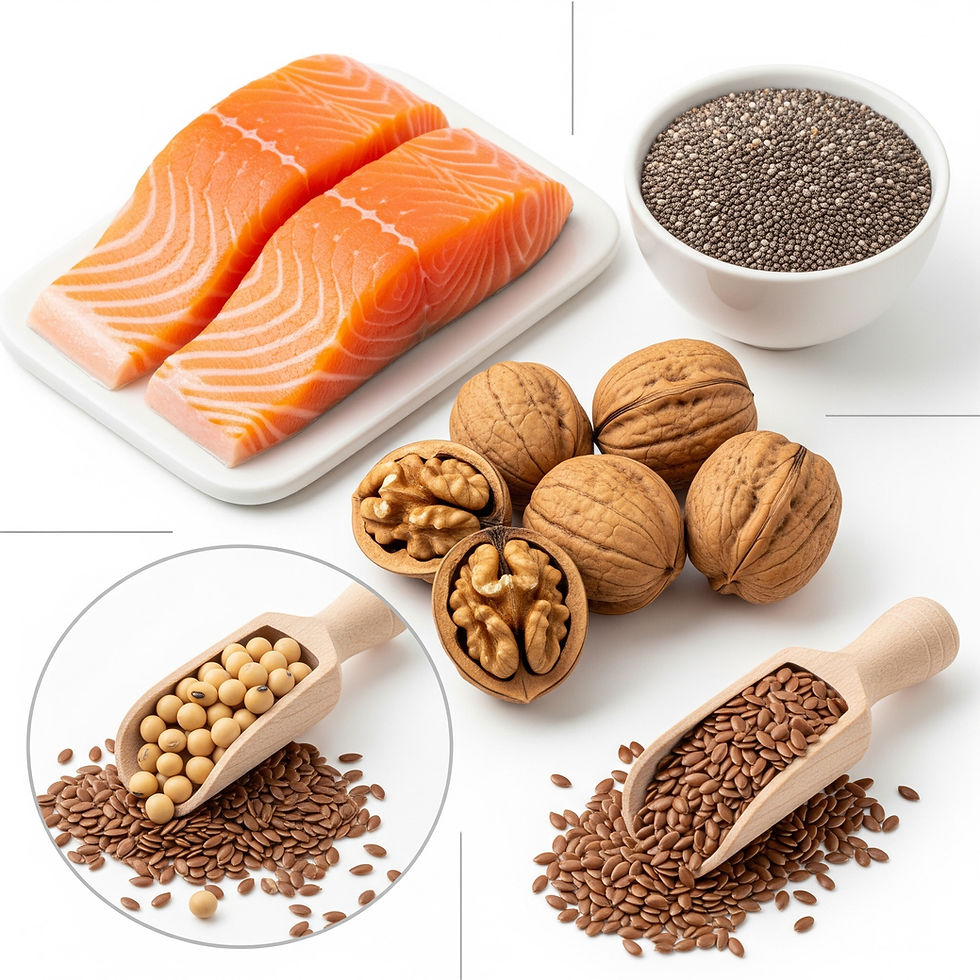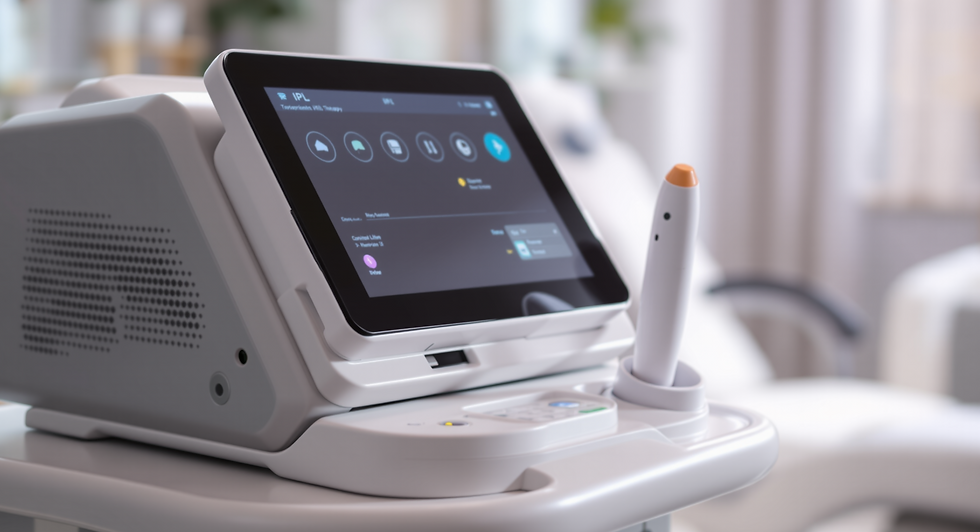Beating Dry Eye Syndrome with a Healthy Diet
- Jul 24, 2025
- 2 min read
Updated: Sep 16, 2025

Dealing with Dry Eye Syndrome (DES) is a frustrating experience, with symptoms like incessant itching, a gritty sensation, and constant irritation. While eye drops are a common solution, what you eat can be a powerful tool in your fight against dry eyes. A growing body of research suggests that a healthy diet plays a critical role in managing DES.
The Omega-3 Advantage
When it comes to fighting dry eyes with food, Omega-3 fatty acids are your best ally. These essential fats are crucial for the health of your meibomian glands, which produce the oily layer of your tears. This oil is what prevents your tears from evaporating too quickly, keeping your eyes moisturized and comfortable.
Incorporating foods rich in Omega-3s can significantly reduce inflammation and improve tear film stability.
Foods rich in Omega-3s:
Fatty fish (salmon, mackerel, sardines)
Flaxseeds
Chia seeds
Walnuts
Soybeans
The Power of Hydration
Your body needs water to function, and your eyes are no exception. The watery layer of your tear film is directly dependent on your hydration levels. When you're dehydrated, your body's ability to produce tears decreases, aggravating your dry eye symptoms.
Staying properly hydrated helps maintain a healthy tear film, which is your eyes' first line of defense against irritation. Remember, you can also "eat" your water by including water-rich foods in your diet.
Foods with high water content:
Cucumbers
Watermelon
Strawberries
Leafy greens
Celery
Key Vitamins and Nutrients for Eye Health
While Omega-3s and hydration are crucial, a comprehensive approach includes other vital nutrients. Each one plays a unique role in protecting your eyes and supporting tear production.
Vitamin A: Essential for the production of mucin, a key component of the tear film that helps retain moisture on the eye's surface. Found in sweet potatoes, carrots, and spinach.
Vitamin C: A powerful antioxidant that protects your eyes from damage and inflammation. Found in citrus fruits, bell peppers, and broccoli.
Vitamin E: This antioxidant protects the cells in your eyes from damage. Found in almonds, avocados, and sunflower seeds.
Zinc: Helps your body absorb Vitamin A and supports overall eye health. Found in lean meats, legumes, and whole grains.
Find Lasting Relief with a Holistic Approach
Changing your diet is a powerful step toward managing dry eyes. While a healthy diet can improve your symptoms, it may not be enough for severe or chronic cases.
If you are struggling with persistent dry eye, it’s crucial to speak with your ophthalmologist. They can help you determine the best treatment plan, which may include advanced solutions like serum eye drops. At Enrich, we work directly with your eye care professional to create a safe and effective autologous serum tailored to your unique needs. We believe a holistic approach, combining a healthy lifestyle with advanced treatments, is the best path to lasting comfort and a clear future.
_edited.png)



Comments